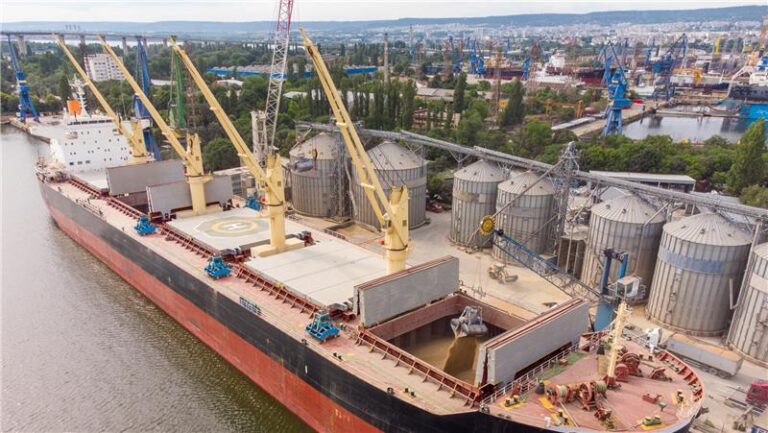What Happens During an Agricultural Land Loan Closing?
Here’s an understanding of what takes place during a loan closing for an agricultural land loan.
So, you’ve been approved for a land loan. You’ve done everything you needed to do—provided all the necessary information and worked with the lender to agree upon terms for your agriculture mortgage loan. As you transition into this final stage of securing the loan, you might be wondering what happens next. The closing period is a very important time, both for you as a borrower and for the lenders themselves. There are several factors that can affect how long it takes to close on a land purchase, so understanding what to expect during the loan closing stage is important.
What to Expect as a Borrower Closing on a Land Purchase
Most of the work taking place during the closing period is done by outside parties, but there are some aspects that will involve you, the borrower. There will most definitely be some information that only you can supply, such as:
- Who is your insurance agent?
- Who is your current lender, if you have an existing loan? (The lender will need to secure the loan note or documentation)
- Who are the responsible parties for signing documents and/or giving consent?
- What are the important details of your business structure, i.e. operating agreement, bylaws, trust agreement, driver’s license, insurance agent, preferred title company, etc.?
By responding quickly and efficiently, you can help expedite the closing process. While you will usually communicate with a single, dedicated point of contact, there may be times where it becomes necessary to work with additional members of the team to help answer questions or facilitate requests.
How Borrowers Can Prepare for a Loan Closing
Besides providing information and engaging in clear, communicative dialogues with members of the lending team, there are a few things that you can do to help your loan close without a hitch:
Be Organized and Proactive
Make sure that you’ve got your documents organized in a clear, easily accessible way. You will most likely need the purchase contract, articles of organization/incorporation, bylaws, insurance, partnership agreements, access ability to private land and tax ID number, to name a few. There might even be some paperwork, like corporation documents, that you’ll need to go out of your way to obtain, so take the necessary steps to request those from the pertinent parties.
Be Forthcoming with New Information
If there have been any major changes to your operation, such as a change in ownership, that have not been reflected in the provided documents, make sure you disclose that. Providing up-to-date information can prevent hiccups and delays down the line.
Consult With Your Attorney
You will want your lawyer to review paperwork and make sure that all unmade changes have been resolved and that the correct individuals are listed on the loan documentation.
What Actions Take Place During the Loan Closing?
After you’ve been qualified and approved for a loan, most times a dedicated closing team springs into action to get you to the finish line to finalize the loan process. Here are six different steps that occur during this process:
1. Engage Appraiser – It’s important to have the most accurate and up-to-date information, therefore the property needs to be appraised and measured so that it matches up to the values that were provided during the loan approval process. Depending on the size of the land, location, and a myriad of other factors, this is the step that can take the longest. A typical loan appraisal takes two to four weeks, although some can last up to eight weeks.
2. Property documentation investigation – During this stage, lenders are taking a closer look at the property in question. They conduct a title search, look for mortgage notes, liens or judgments, as well as any other restrictions that might be against the property.
3. Insurance verification – Lenders want to make sure that the investment is properly protected. During the closing period, lenders will check to make sure that you, the borrower, have lined up the necessary coverage. This includes general insurance, liability insurance, hazards insurance, and flood insurance/determination.
4. Document preparation – This is when the actual official loan paperwork is created, making sure that the loan terms match and align with what has already been approved.
5. Fee calculation – This step can be started at any point but cannot be finalized until all the above steps are completed. It includes any title fees that might come up during the closing process including recording costs, property taxes, real estate commissions and more. Lenders will use the closing period to calculate these fees based on the documents provided so that you have an accurate idea of what your closing costs will be.
Throughout this process communication is happening back and forth between the lender, title companies, settlement appraisers and real estate agents, and even with yourself, the borrower.
Factors That Affect How Long It Takes to Close on a Land Loan
There are so many moving parts and boxes that need to be checked in order for a land loan to finalize. And rightfully so! Borrowing money isn’t something that lenders or borrowers take lightly, and it needs to be done thoroughly and accurately. That being said, here are some of the variables that could affect the speed of your loan closure:
- Location of the property and accessibility.
- Cooperation of the clerk’s office—rural or remote office locations can make it more challenging to get information back and forth quickly, as their resources might be more limited.
- Size of the land parcel that is being purchased. The larger the acreage, the more time it takes to appraise.
- Flood zone considerations—if it’s flood season, the property might not be accessible to the appraiser.
- Your availability to communicate in a timely manner can have a major positive impact on the expediency of your loan closing. By providing documentation and answering questions in a timely manner, you can help prevent communication errors or unnecessary delays.
- Forming a new entity to take property can cause delays due to additional paperwork and approvals.
- Insurance acquisition—before a loan can close, all the necessary insurance needs to be obtained, including flood, liability and/or hazards insurance. You may have to increase your insurance coverage or risk being classified as under-insured.
- Lacking the appropriate documentation can extend the length of closing time.
- In general, a new purchase will take longer than a refinance, although refinancing a younger loan (under a year old) is easier because most of the existing documentation can still be used.
Taking Control of Your Farm’s Finances
As a non-bank lender, we have the flexibility to offer customized tier-priced, borrower-specific solutions based on your personal financial goals and your operation’s unique needs. Speak with one of our lending experts today to learn more about our spectrum of loan options.






